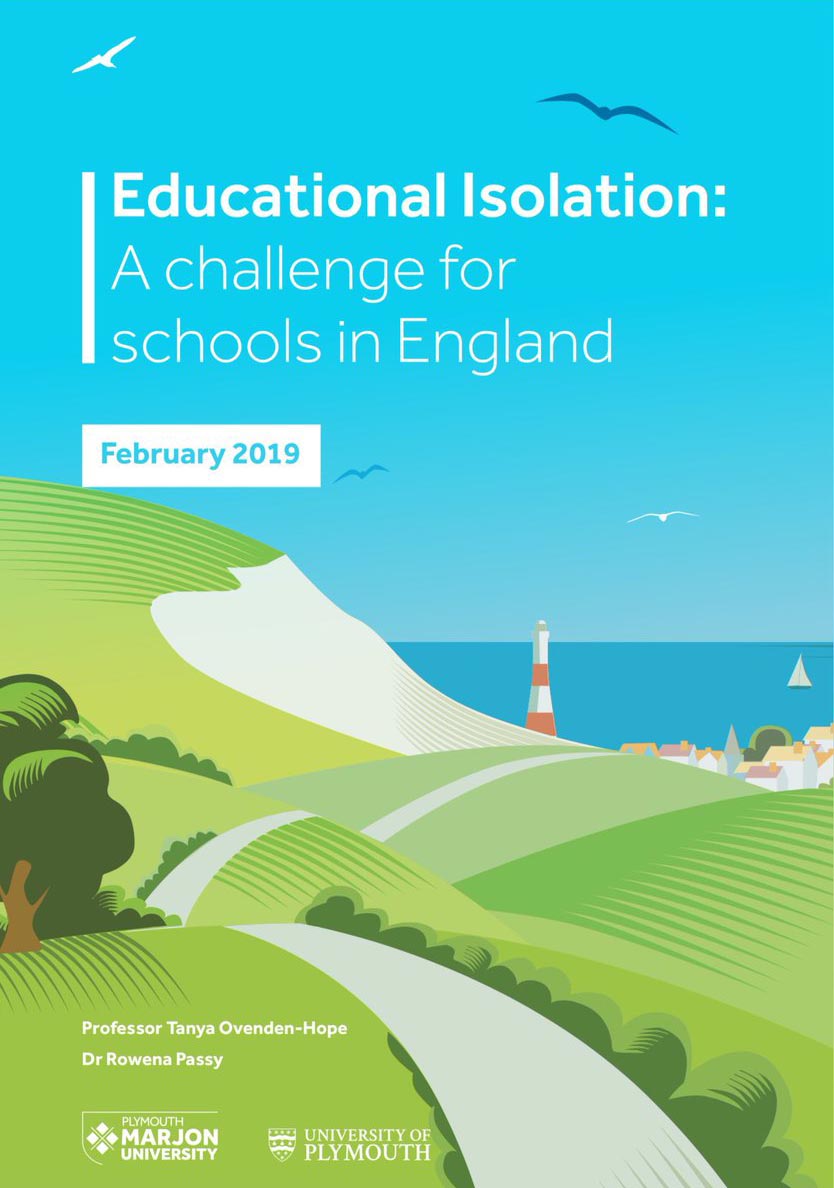Current Research // Latest News

Educational Isolation: A challenge for schools in England
- 13/02/2019
- By Tanya Ovenden-Hope, Rowena Passy
Educational isolation is complex, grounded in location, situated in access to resources and results in reduced agency for schools.
'Educational Isolation: a challenge for schools in England' aims to provide an understanding of this complexity through a considered definition of 'educational isolation' and to support schools in accessing resources for school improvement through recommendations for policy makers, funding agencies/organisations and stakeholders.
Welcome to Educational-Research.co.uk
The aim of this website is to encourage particpation in educational and sociological research, through sharing examples of my own research and publications. You could be a Sociology A Level student, a teacher/lecturer, an educational leader, a trainer for your Local Authority, a trainee teacher, a teacher trainer...anyone with an interest in education and what makes it work (or not as the case may be). Research offers an opportunity to find answers to your own questions and to make a difference, whether that be for your own practice, the practice of others or at an educational policy level.
The first area of detailed educational research (underpinned by sociological theory)I engaged with was on student achievement (1996). This investigation focused on boys perceived underachievement in secondary education, critically examining boys' public examination results at the end of compulsory schooling, while analysing primary data and theoretical concepts to offer tentative suggestions for the static performance on boys in examinations in KS4 for the last thirty years.
Hope, T. (1996) [A Question of Underachievement: Boys and Secondary Education]. Oxon, Oxford Brookes University (MA dissertation).
Bitten by the research bug I then embarked on a longitudinal study of the affects of a (then) pilot government policy to fund students from less affluent backgrounds who particpated in post-compulsory education - the EMA.
About Me


